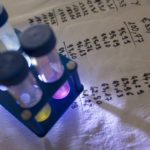Lien vers Pubmed [PMID] – 37231013
Lien vers HAL – inria-04157963
Lien DOI – 10.1038/s41467-023-38807-9
Nat Commun. 2023 May 25;14(1):3028
The production of recombinant proteins is a problem of major industrial and pharmaceutical importance. Secretion of the protein by the host cell considerably simplifies downstream purification processes. However, it is also the limiting production step for many hard-to-secrete proteins. Current solutions involve extensive chassis engineering to favor trafficking and limit protein degradation triggered by excessive secretion-associated stress. Here, we propose instead a regulation-based strategy in which induction is dynamically adjusted based on the current stress level of the cells. Using a small collection of hard-to-secrete proteins and a bioreactor-based platform with automated cytometry measurements, we demonstrate that the regulation sweet spot is indicated by the appearance of a bimodal distribution of internal protein and of secretory stress levels, when a fraction of the cell population accumulates high amounts of proteins, decreases growth, and faces significant stress, that is, experiences a secretion burn-out. In these cells, adaptations capabilities are overwhelmed by a too strong production. With these notions, we define an optimal stress level based on physiological readouts. Then, using real-time control, we demonstrate that a strategy that keeps the stress at optimal levels increases production of a single-chain antibody by 70%.




